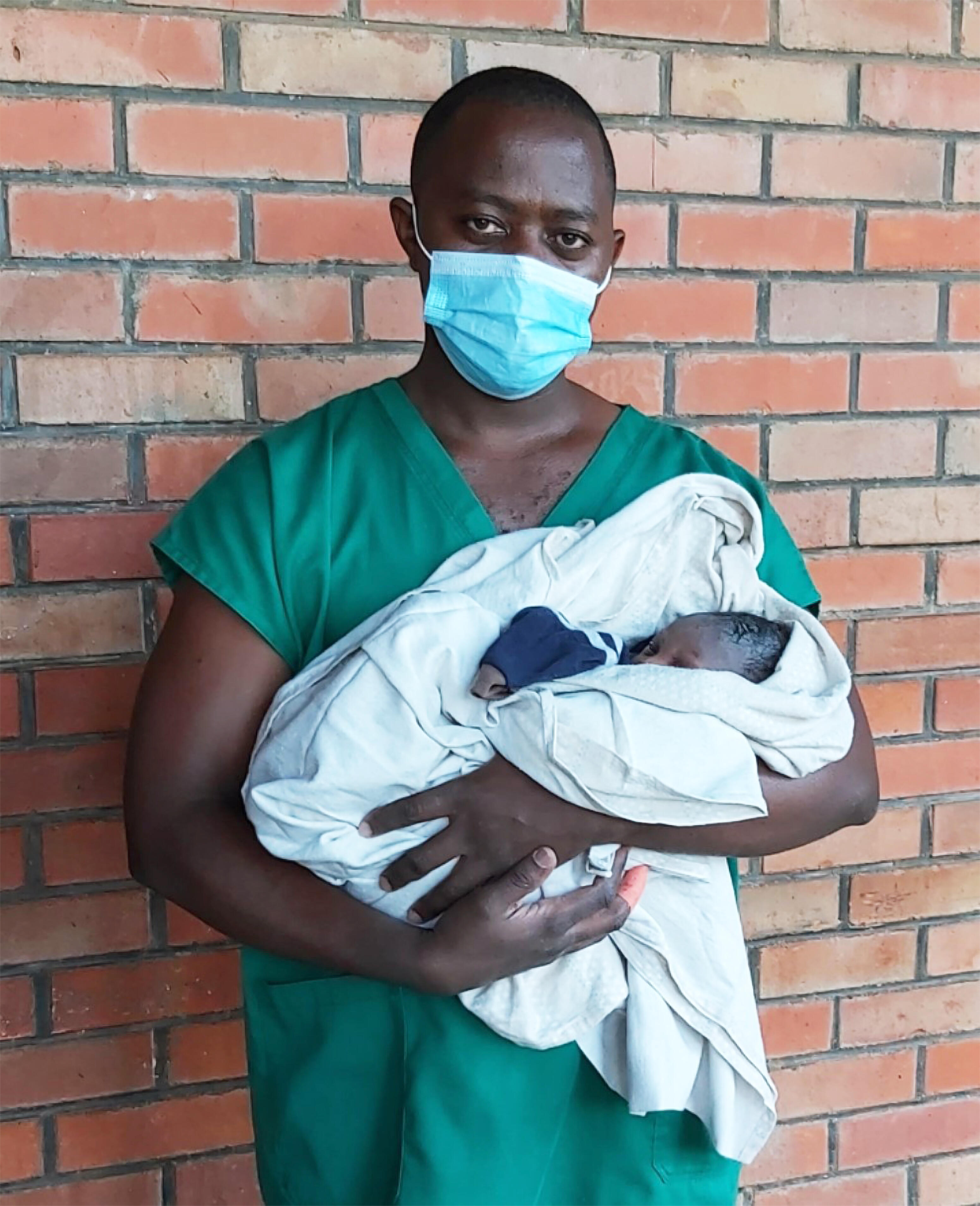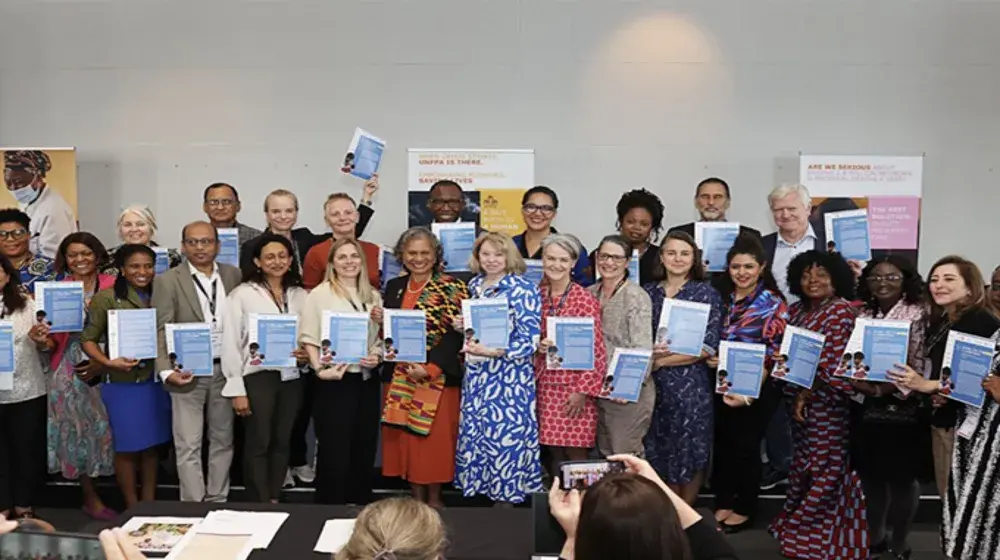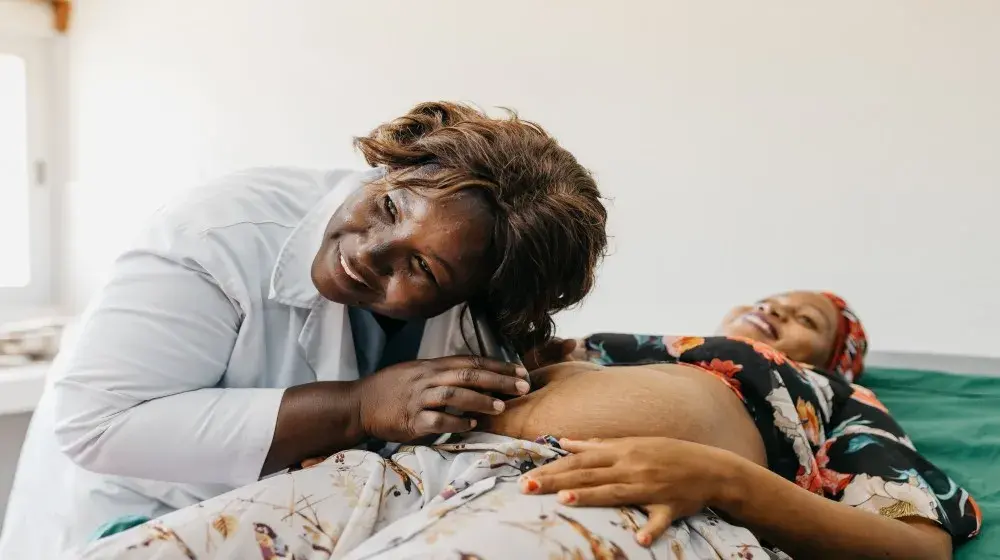Every day in every part of the world, midwives save the lives of women and babies and promote the health and well-being of entire communities.Midwives have faced increasing pressure during the COVID-19 pandemic, and heightened inequalities in their workplaces. They have put their own lives at risk serving others.
MBONABUCYA Jean Felix, a Rwandan Male Midwife, currently working at King Faisal Hospital, Kigali, shares his experience of being a midwife in the middle of a pandemic.
Mbonabucya contracted COVID-19 in January 2021. After one month of self-isolation at home, he did not regret his decision of becoming a midwife, instead, he renewed his hope and persistence in a bid to see himself caring for mothers once again.
Being a healthcare provider was his childhood dream, which also influenced his educational background.
“My motivation comes from my mother who was a nurse before the 1994 genocide against the Tutsi. With a goal of becoming a healthcare provider, I studied science and after my high school studies, I was admitted in midwifery in the University of Rwanda, former KHI.” He said.
To Mbonabucya the midwifery profession is an incomparable gift and an opportunity for someone to serve between God and his creature.
In Rwanda, 93% of maternal deaths happened in health facilities. Errors in diagnosis, taking a long time to make the right decision and mismanagement of patients are the 3 reasons of maternal deaths. Midwives play a big role in preventing that.
“A midwife’s day to day duty is to accompany mothers in their journey to delivery. Imagine a mother losing her baby at the last minute after 9 months of carrying them. It is our responsibility to make sure that doesn’t happen.” stated Mbonabucya.
“Our profession requires devotion and speed, because a delay to take a decision may result negatively. “He added
Midwife in the context of COVID-19 response in Rwanda
As the world battles COVID-19, women continue to get pregnant and babies are still being born. Childbirth does not stop for pandemics, and neither do midwives. They are working tirelessly on the front line in maternity wards and health centres to save the lives of women and newborns.
Pregnant women were affected in different ways: Some could not be discharged immediately because of movement restrictions; some women ended up spending two days at the health facilities due to the lack of transportation means
“At the beginning, we were all affected morally (mothers and midwives) and afraid of being infected by COVID-19. Women who tested positive were manifesting signs of depression, as any other COVID-19 patient, thus they need extra care during and after giving birth.”
“As health care providers, even if we were worried as well, we did not stop caring for mothers, we had to follow all protocols and preventive guidelines, unfortunately some of the midwives contracted COVID-19, and tested positive. I was among them!”
“After testing positive, I isolated myself at home for a month. The number of positive cases was increasing every day and I was worried thinking about how my journey as a midwife may end. It was difficult but I never regretted my choice of being a midwife. I kept the hope to see myself caring for mothers and babies again. Now 3 months since my recovery, I am happy to be back and share the story of my life during this pandemic”.
Celebrating the International Day of the Midwife 2021
The International Day of the Midwife gives Mbonabucya an opportunity to celebrate his achievements as a midwife, and discuss the challenges they face in the profession and how to overcome them especially while we are still fighting the pandemic.
“This is the time my Colleagues and I have to reflect on our role of providing assistance to life giving. Well-being of mothers and babies brings us joy. There’s no peace if the baby is born tired or when the mother falls into your arms due to the carelessness and lack of concentration. We appreciate the support we get from the government, and other partners.” He said
Midwives deserve greater investment in their capabilities, and workplaces that empower them and fully acknowledge their skills and contributions.
On the International Day of the Midwife, we honour the extraordinary contribution of midwives to humanity, and highlight the mounting data and evidence for more investment in midwifery as an essential element of health care.
UNFPA applauds the work of all midwives, and we pledge to stand by them, working with the government to protect midwives from COVID-19.




